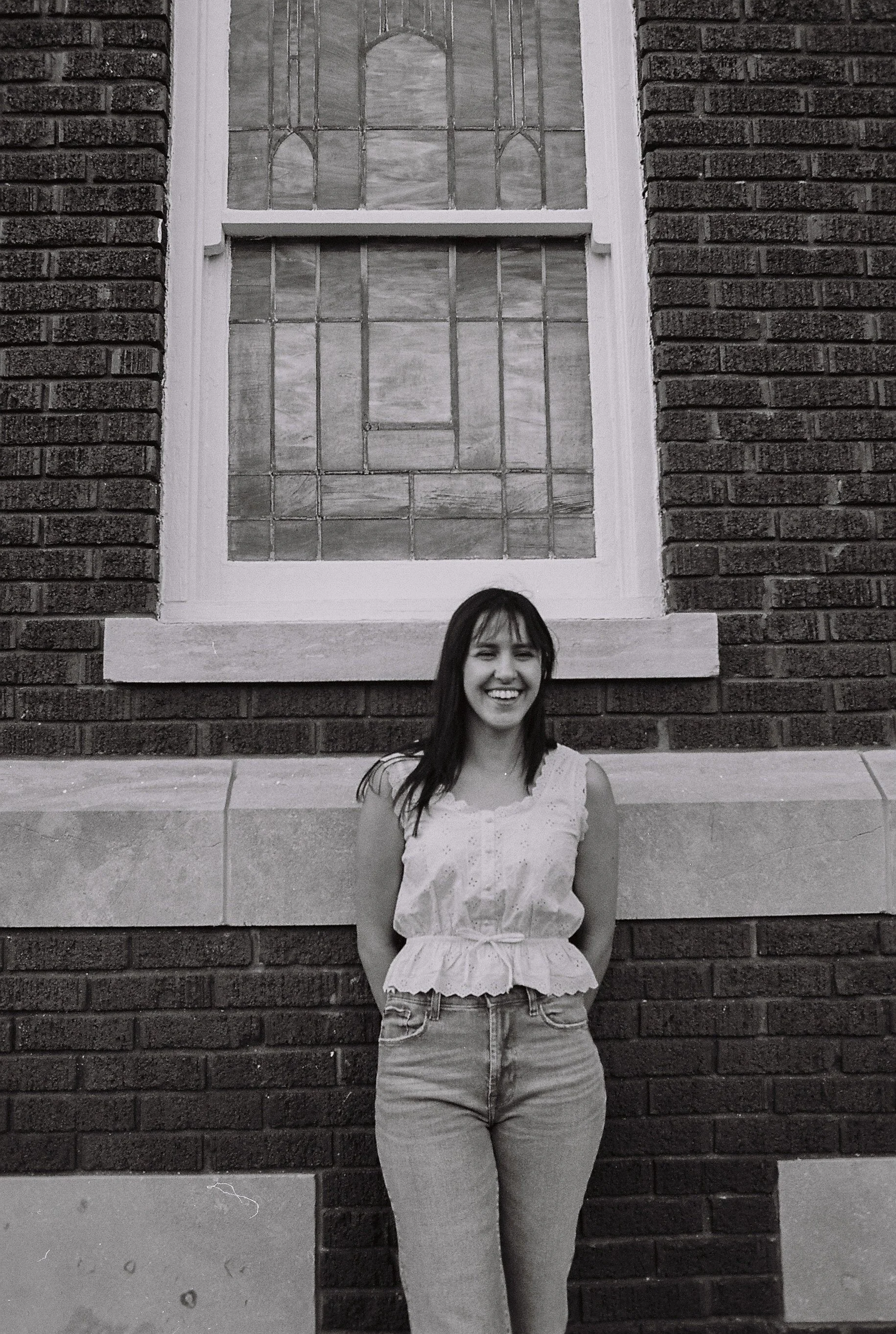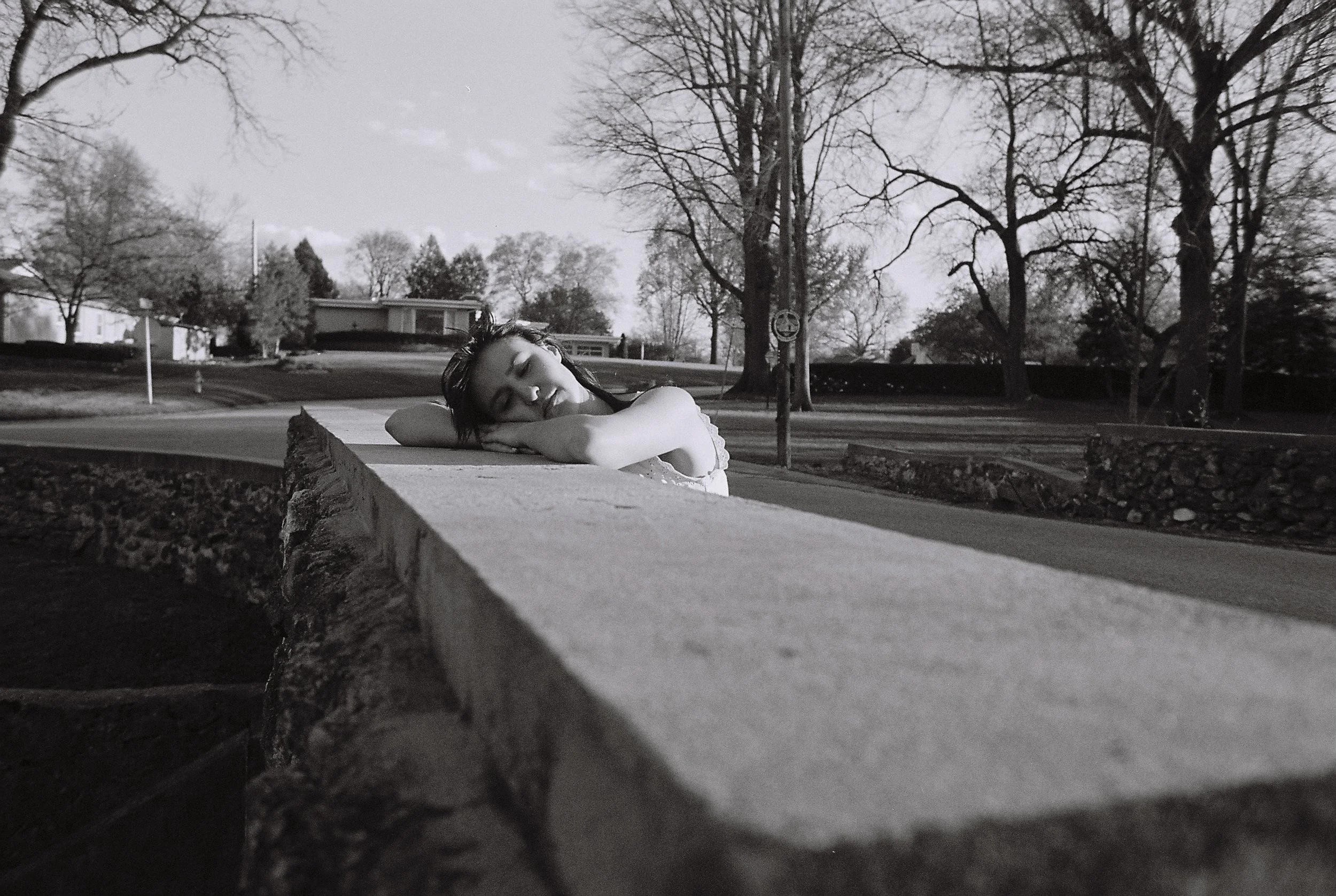Joan Baez’s Undeniable Impact on Society and Music
Written by Reese Tackett
Photographed by Elisa Peters
Modeled by Brooke Benne
In 2024, Monica Barbaro played Joan Baez in “A Complete Unknown,” the Bob Dylan biopic. However, Dylan wasn’t the main discourse in response to the movie. Joan Baez has been the topic of discussion; where is the major motion telling of her life? Rather than receive that, we ended up with another Dylan movie to add to the pile. However, Baez’s life is truly a marvel — she is a woman that pushes the limits on music and social justice. She attended civil rights marches where she would sing and protest, created her own anti-violence cause, and always spoke her mind in pursuit of human rights and social change.
Baez was born in New York 1941 and learned to play ukulele and sing at a very young age. Baez is of Mexican- Scottish descent and her parents were devout Quakers and lived an anti-violence lifestyle. Growing up, Baez’s father Albert Baez would take her to demonstrations. This exposure led to her peaceful stance on human rights and equality that would translate into her music and presence at protests. One of the defining moments of Baez’s life would be when her aunt took her to a Pete Seeger folk concert at age 13. This launched her into a fascination with folk music where she began to create and perform her own songs, first with a ukulele, then guitar. After highschool she enrolled in Boston University, but ultimately left the school to pursue her passion of music.
At just age 18, Baez performed at the Newport Folk festival in 1959 which launched her career almost overnight. For the first 15 years of Baez’s career all her albums were political, then in 1975 she released “Diamonds and Rust,” her first non-political album. The album tells a different story of the struggles that can come with loving someone who isn’t good for you.
However, love is not Baez’s main focus throughout her life, advocating for equal rights, speaking out against injustices, prison reform, anti-war, and so much more are her passion. “Nonviolent action was what I was born for.” In 1965, Baez founded: The Institute for the Study of Nonviolence. There in Carmel Valley, California, for many years the institute would host students that would take classes about non-violence, meditation, teachings of Gandhi, and much more.
From her 1967 song, “Saigon Bride” about the Vietnam War:
“How many dead men will it take/To build a dike that will not break?/How many children must we kill/Before we make the waves stand still?”
Baez first saw Martin Luther King Jr. in 1956 at age 16, now she explains "When he started to speak, I started to weep and I couldn't stop. This man was doing what I had been reading about and talking about. I was basically blown away." Baez went on to share a close friendship with Martin Luther King Jr. for many years. They would attend many marches together, including performing at the March on Washington for Jobs and Freedom in 1963 where Reverend Martin Luther King Jr. took the stage to deliver his infamous “I Have a Dream” speech. Joan performed alongside Paul Stooky, also Dylan, whom she invited. She would go on to march with Martin Luther King at the Selma to Montgomery March in 1965 and in 1966 in Grenada Mississippi alongside 250 Black children, other civil rights activists, and parents to integrate their school. The group was met with horrifying violence imposed by a mob of white people. The march led to a federal judge ordering protection for the 250 students and the arrests of 13 members of the mob. Baez has always been strongly against segregation, on tour she would refuse to perform at segregated schools.
“Social change doesn’t happen without the willingness to take risks,” she told a reporter at the New York Times.
Baez’s music has paved a way for every female singer-songwriter to flourish in the future. Her lyrics are intricate, poetic, thoughtful, and beautiful. The way she can arrange music and lyrics in tandem is something so dear to myself and so many alike. She forces the heart to feel, the mind to think, and the soul to sway. She sings with an ease very few singer’s can execute — an angelic, soft, but at the same time powerful melodic presence.
Currently, Baez still uses her platform to speak out against political injustices including: playing at benefit concerts, using her platform to call out things such as oligarchy, fascism, and racist immigration raids. Joan Baez is truly a marvel, a woman who never wavered in her passion — someone who spoke out no matter what and whenever possible uses her voice for good.
From her 2017 song, “Nasty Man” about Donald Trump:
“If you’re gonna build a wall, the bigliest wall, the beautifulest wall round our borders/Here's what I think, you better talk to a shrink, cause you’ve got dangerous pathological disorders.”








